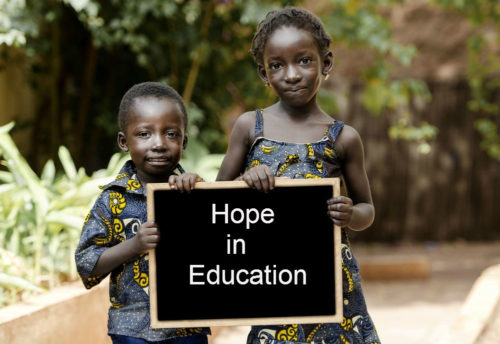
Impact of Education in Africa
Education plays a fundamental role in the process of building the personality of children and expanding their cognitive skills. A good pre-primary education has lasting effects in an individual’s life and it also affects the development of a child all the way into adulthood. It affects both the child’s social behavior and intellectual development. A high quality pre-school followed by an academically effective primary school, give children’s development a significant boost, resulting in less repetition and dropout. During pre-primary enrollment, only seven countries in the region, namely Equatorial Guinea, Ghana, Mauritius, Angola, Capo Verde, the Seychelles, and South Africa, achieved a gross enrollment ratio of 80% or more in pre-primary education, while only 2% were enrolled in Mali.
Although Africa has made great progress in primary education in the past decade, the continent still lags behind when compared to the rest of the world. UNESCO statistics show that 58 million of children are out-of-school who lives in Sub-Saharan Africa. Sub-Saharan Africa’s school age population is growing faster than in any other region – up to 29% since 2000. This translates into an extra 49 million children and compares with a fall of almost 10% in the rest of the world. The result is a strain of the educational system on the African continent. A child that manages to enter primary education will probably find an overcrowded class in an understaffed institution.
Burundi, Ethiopia, Morocco, Mozambique and Tanzania have shown improvement in several indicators of primary education. In these countries, gender and income disparities in school access have reduced, and net enrollment ratios and primary attainment rates have significantly improved in the past decade. Many countries in Sub-Sahara Africa face challenges that are almost non-existent in most of the developed countries. Out of 33 conflict-affected countries in 2012, 13 were in sub-Saharan Africa. Young people in many of these places end up being recruited as child soldiers or slaves.
Some initiatives that showed good results across Africa are: free primary education, cash transfers, school feeding programs and take-home rations, increasing the supply of schools and classrooms, and investing in health and infrastructure. These policies, when implemented consistently and effectively, manage to greatly improve school enrollment rates.
Secondary school in Africa faces more difficult challenges. Secondary school enrollment rates in Africa are the lowest in the world. In 2013, just 28% of youths were enrolled in secondary school, leaving more than 90 million teenagers outside of the system. The goal of expanding access to secondary education is paramount and will certainly take more time to reach than universalizing primary schooling. In this process there is usually a split between the poor and the rich, which is less prominent in primary education.
The introduction of a nine-year basic education cycle and eliminating fees for lower secondary school, boosted the number of lower secondary students by 63% between 2008 and 2010. The government is now working towards 12 years of free education for all. They are making secondary education compulsory and free to increase the ratio of enrollment of students. However, many children completely abandon school and instead dedicate their time working, although some try to reconcile both school and a part-time job. In Cameroon, about 70% of students aged 12 to 14 were engaged in a labor intensive activity in 2001. From that time to 2011, the change observed was negligible. Work and education as a rule do not make a good pair. The hours children spend working will affect their performance in the classroom, if they even manage to attend the classes.
Education is basic for advancement and helps establish the frameworks for social growth, monetary development and security. From generation to generation, knowledge is passed on, expanded and enhanced. Technologies are culminated, developments are made, and our comprehension of ourselves and of the universe are extended. This is altogether accomplished through education. A nation can just achieve sustainable growth if its citizens have access to education. Through education, individuals can build up their aptitude (which important to escape poverty), appreciate better well-being, and take part in political procedures that influence their lives.
Like what Leila Gharagozloo-Pakkala, UNICEF’s Regional Director for Eastern and Southern Africa, says, “If the right policies and interventions are in place, together with financial investment, education can be a driving force in achieving the Sustainable Development Goals.”
Click here to donate.
« The Significance of Child Sponsorship
